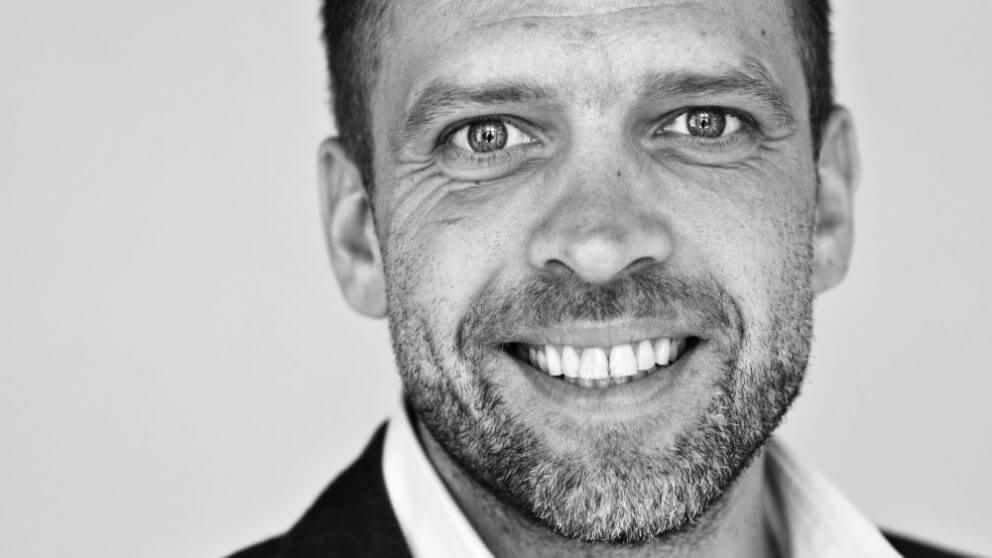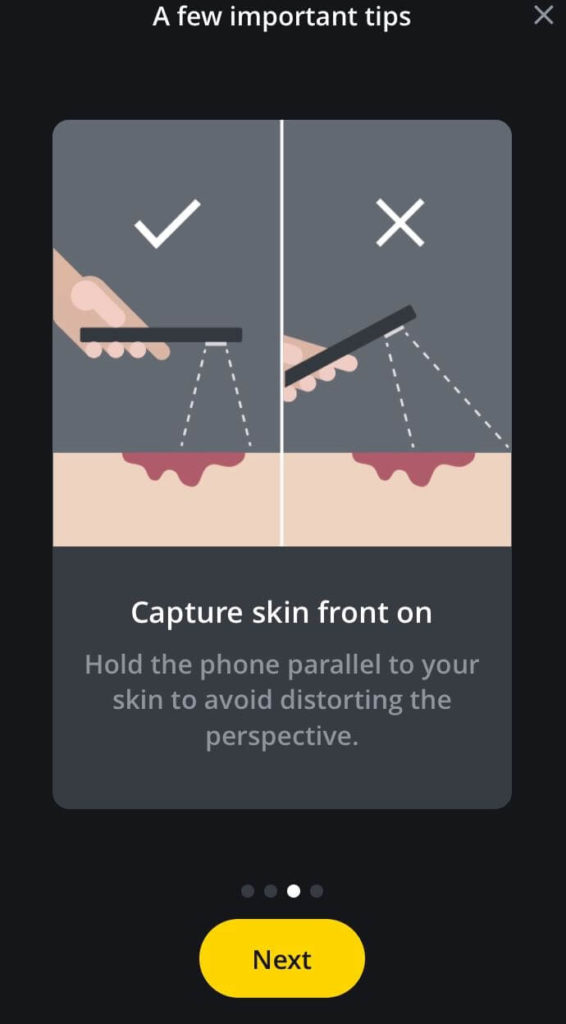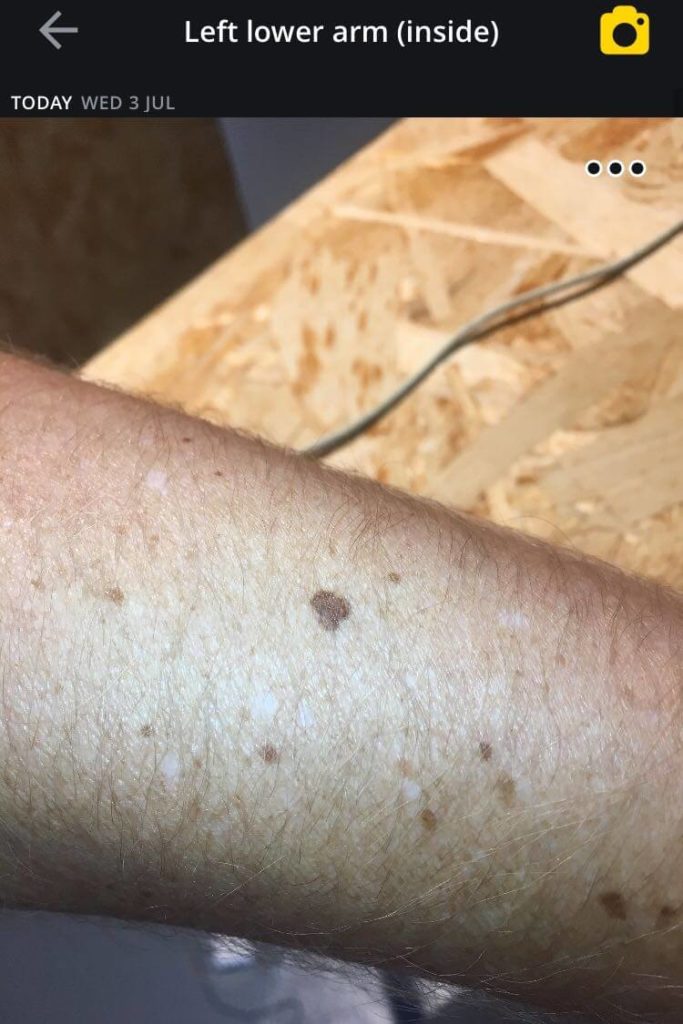LEO Innovation Lab Announcement: We beat Google at Artificial Intelligence (AI) in healthcare

“We’ve beaten Google”
LEO Innovation Lab is a global leader in diagnosing skin disorders using image recognition and artificial intelligence (AI). However, sluggish regulation is a brake for them to scale and unwillingness to test AI in clinical practice, says Kristian Hart-Hansen, CEO of LEO Innovation Lab.
Denmark is strong when it comes to digital innovation in the health the sector, regardless of any label like Life Science, Healthtech or Medtech.
One of the global leaders in diagnosing skin diseases using AI is LEO Pharma’s standalone innovation Laboratory, LEO Innovation Lab, which was established a little over three years to develop digital health services for a better daily life with people that have skin diseases, particularly psoriasis.
Try our artificial intelligence algorithm for FREE to see if you it is better than LEO
Close to breakthroughs
Skin disorders is well suited for image recognition: A doctor can take a photograph of a patient’s birthmark that has changed in appearance, or a rash, then using a trained AI algorithm on infinite many similar images, the doctor gets a quick answer on the skin disease in front of him.
To build an AI algorithm, it requires hundreds of thousands of images. Images have to be double-checked by several dermatologists to ensure that the data on which the AI is based is correct.
LEO Innovation Lab has a panel of 15 dermatologists that review the images, which is a cumbersome task, but it is both more accurate than the individual doctor’s assessment – and faster.
Try our artificial intelligence algorithm for FREE to see if you it is better than LEO
We are now so far a head that we are talking to the biggest players in the world to get our solutions into play.
“We have a database of hundreds of thousands of skin images, and we work with a team of 15 dermatologists to train our algorithms to identify the individual skin diseases. It is not easy, and it requires a great setup and a massive investment. We have now been working on it for just under three years and we are now so far ahead the competition that we are now talking to the biggest players in the world about getting our solutions into play, “says Kristian Hart-Hansen, CEO of LEO Innovation Lab.

Photo by First Derm of LEO Innovation Lab better than Google Artificial Intelligence (AI)
In order to be well equipped for the next steps, which is focused on growth. LEO Innovation Lab has added two international experts in dermatology to their board: Justin Ko who is the head of dermatology at Stanford University Hospital, and Joel Dudley, a research pioneer in “precision medicine” from Mount Sinai Hospital in New York.
Try our artificial intelligence algorithm for FREE to see if you it is better than LEO
Track the skin disease with your app
Using data and, in particular AI in healthcare, we can significantly be better at treating, be effective and economical.
Experiments made by LEO Innovation Lab, has shown that a general practitioner (GP) assessed a skin disease correctly in 45% of cases. However, when the physician was helped by an AI decision support tool, the diagnostic accuracy increased by an additional 34%.
AI can become a tool for greater diagnostic accuracy, but equally important: it can help free up more time for doctors. Finally, it can be used by patients themselves to take care of their disease from app in from the comfort of their home.

Photo by First Derm of LEO Innovation Lab better than Google Artificial Intelligence (AI)
Try our artificial intelligence algorithm for FREE to see if you it is better than LEO
A window of opportunity
Although LEO Innovation Lab is among the world leaders in dermatology, the technology and its solutions are still only in its infancy. According to Kristian Hart-Hansen, it will take 5-10 years for the healthcare system and ordinary people to use health solutions with AI, rather than within a time horizon of a few years.
The EU is lagging behind using AI in diagnosing
Disruption in the healthcare sector is slower than in other areas. It is especially the regulatory hurdles, but also a certain skepticism among doctors and patients against using AI that slows development.
“But the development is already rolling elsewhere in the world, and in fact we are quite far in Denmark, so we should use this momentum to push on at this moment ,” says LEO Innovation Labs CEO.
He refers to what is happening in China in AI; where the use of AI by Chinese doctors in general diseases is increasing exponentially – in 2018 there were over one billion online consultations in China.
“It’s already happening. But the EU is lagging behind in using AI to diagnose disease, “says Kristian Hart-Hansen.
Try our artificial intelligence algorithm for FREE to see if you it is better than LEO
Overhauled Google at AI in Healthcare
The major tech giants are also investing heavily in healthcare today, where they see huge opportunities in the future.
“But today we [LEO Innovation Lab] are the leader in AI and dermatology. Now we have to see if we can keep our position, but right now we’ve beaten Google, “says Kristian Hart-Hansen.
“In order to keep a-head the driver’s field we need to drive on. This means that we need to start more pilot and experimenting in collaboration with Danish doctors, so that the AI can reach the next level, develop services that work that have the potential to make an even greater difference to sick people. AI requires data – and a lot of data. It is pure pattern recognition, which is why it is essential to train models in the “real world”, “he explains.
There are indications that new technologies in healthcare are blowing in the wind. Although AI is far from mainstream in the Danish National Healthcare Service, Kristian Hart-Hansen feels that there is an incipient openness in the healthcare system to use AI in everyday medical practice.
“The junior doctors are very interested in AI and technology, but until there are concrete solutions in the market, there is still some way to go, “he says.
Try our artificial intelligence algorithm for FREE to see if you it is better than LEO
Original article in Danish is by Marianne Schacht on 27 June 2019, at 08:30 and can be read here
Ask a Dermatologist
Anonymous, fast and secure!

The Specialist doctor from the University Hospital in Gothenburg, alumnus UC Berkeley. My doctoral dissertation is about Digital Health and I have published 5 scientific articles in teledermatology and artificial intelligence and others.

